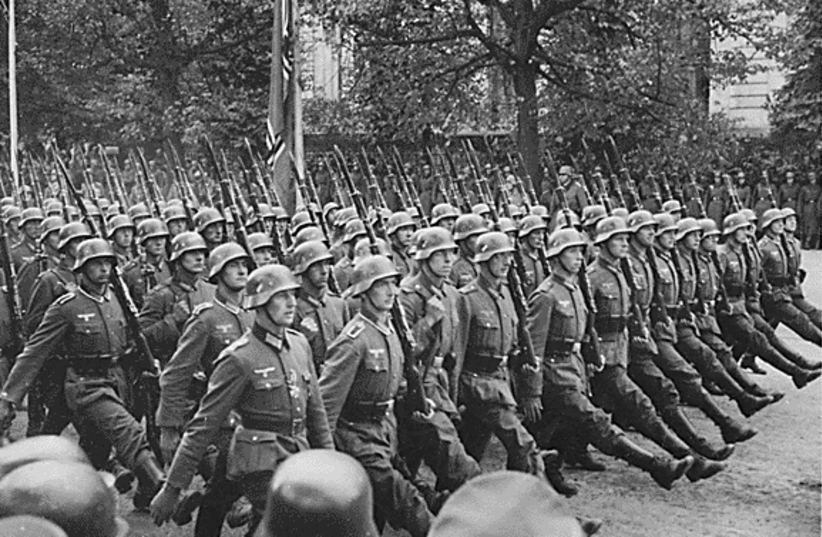German soccer team Schalke 04’s “Schalke Fan Project” is leading a research initiative to discover more about the deportation of Jews from the Western German city of Gelsenkirchen.
The project, called "Erinnerungsort Wildenbruchplatz" (place of remembrance at Wildenbruchplatz), investigates municipal, state and federal archives for the stories of victims who were deported from Gelsenkirchen, the hometown city of Schalke 04.
Atrocities committed by the Nazis in Gelsenkirchen are further clarified by the findings. Local resident Helene Lewek, who took her own life shortly before she was set for deportation, are among the stories brought to public attention.
The group's research further revealed some of the perpetrators' stories, such as that of Gestapo field office director Robert Schlüter, who denied and excused him and his colleagues’ cruelty. He was ultimately acquitted by courts.
The “Wildenbruchplatz,” a once-bustling city square from which 350 Jews from Gelsenkirchen and 150 from other cities were deported to Latvia in 1942, was at the root of the Fan Project’s research. "It is sometimes difficult to find a way to find an entry point into this subject, but here we have a concrete place that you can focus on," 25-year-old Schalke supporter Jannik Rituper told German news organization DW.
According to the research, victims were jammed into a hall surrounded by barbed wire on a night of below-freezing temperatures as they awaited their forced deportation. Nazis awaiting their arrival in Latvia would later murder the transported victims.

Rituper, along with other Schalke Fan Project participants, has spent at least six hours per week with the project over the past six months. He was able to interview Gelsenkirchen resident and Holocaust survivor Rolf Abrahamson, 96, and played the video recording at the city's New Synagogue.
"We always believed that the next day wouldn't come for us," said Abrahamson, who was 16 years old at the time, as he recalled his deportation from Gelsenkirchen to various concentration camps.
Around 25 Schalke supporters are participating in the project. Civil-servant Natalie van den Meulenhof said she hopes that the evil committed by the Nazis will not soon be forgotten. "Through educational work, antisemitism can be contained and combated," she declared.
Schalke 04 and the Schalke Fan Project have an extensive record in combating discrimination. In 1994, it became the first German-league club to include a pledge in its statutes to fight against racism and discrimination.
In 2001, they commissioned a study on the club’s links to the Nazi Party during its reign and terminated plans to name a street near the stadium after Fritz Szepan – who won six championships with Schalke 04 and is considered one of the greatest players in the club’s history – after his Nazi party affiliations and takeover of Jewish businesses was discovered. Schalke has a plaque commemorating nine Jewish members and supporters who perished in the Holocaust.
"I'm incredibly happy with the result," Rituper said. "We came up with questions that had never been asked before."
